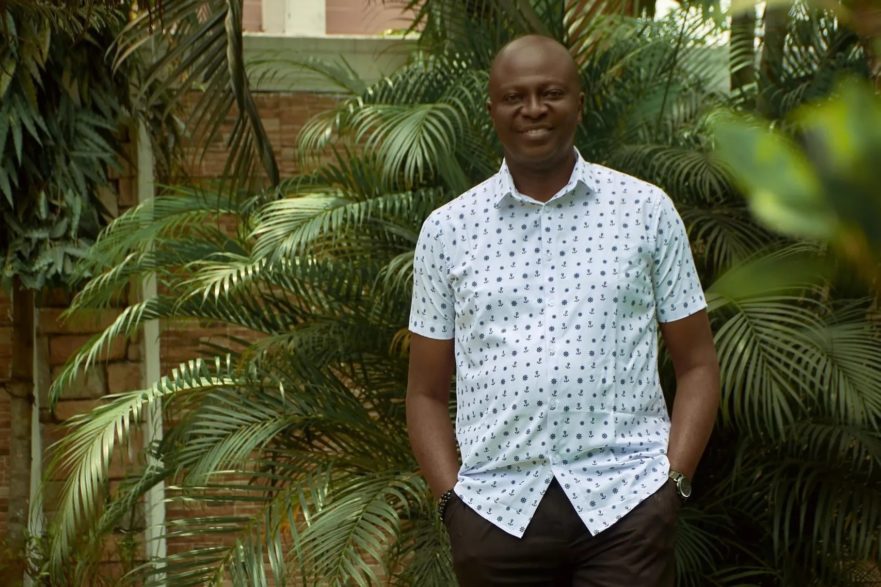January 29, 2023
21Wilberforce seeks to mobilize and equip global faith communities and networks to engage in protecting religious freedom and defending the persecuted. In 2020, 21Wilberforce entered into a strategic partnership with a global denominational network to test and develop a mobilization and support program that can be replicated for other denominations and faith groups.
Central to this program are regional representative Ambassadors and action teams that can work with regional denominations, organizations, and churches in helping identify and meet the needs of churches and members facing religious restrictions or persecution. Each month 21Wilberforce highlights a regional Ambassador.
Here is an excerpt of a recent conversation with Dr. George about his vision for advancing religious freedom in Africa as he serves as the Africa Ambassador for 21Wilberforce.
Dawari: The son of a Baptist clergyman, I am a political economist with a doctorate degree in Political and Administrative Studies (Development Studies). My background spans a wide-ranging career in development, government, academia and church leadership. Relevant to the denominational partnership that 21Wilberforce has with the Baptist World Alliance (BWA), I presently serve as the head of Baptist World Alliance Men among my other work. (Read more about Dr. George’s background here.)
When I found myself serving on the BWA Commission for Transformational Leadership, I learned about 21Wilberforce and the work you do in various countries across Africa. So, it was a pleasant surprise when I was invited to serve as your Ambassador for Africa. I accepted the assignment with great enthusiasm and joy because your advocacy program is dear to my heart.
As 21Wilberforce Africa Ambassador, what is your vision for religious freedom and grassroots involvement in Africa?
Dawari: Given that this is a new position, in addition to what we are asked to do on advocacy, I realized that we must “think outside the box” for our initiative. 21Wilberforce provided me with a basic template for the Ambassador program and I tailored it for our country. Africa has its own peculiarities, culture and traditions. And the way we understand and approach religious freedom issues in Africa is different from, you know, other parts of the world.
First, I started looking at the possibility of bringing in volunteers. When I say volunteers, I’m talking about an Africa Religious Freedom coalition comprised of teams. These are people in academia, parliamentarians, religious leaders, and the legal profession. I am modeling the multi-faceted team approach off the existing BWA denominational structure.
For example, our parliamentarian action group will focus on governance issues and religious freedom. Those in academia will focus primarily on research, providing background information. The religious leaders will be very much involved in mobilization, in sensitization, in outreach. The legal practitioners will provide pro bono help, defending people whose religious freedom has been violated.
Further, we are thinking that one way to deal with the issue in our country is to build solidarity around the vision in a way that people of other religions, including those who are traditional worshipers can align with our vision and run with it. So, in defending and protecting those rights for instance, we will not limit it to Christian standing for us to speaking of a Christian or a Muslim standing up and speaking of a Muslim. The Africa Religious Freedom Project can help bring all faiths together and unite us.
How are you bringing this vision to life?
Dawari: In October of 2022 we convened leaders representing the four sectors (academia, faith, government and legal) in one of our African countries. We shared information about 21Wilberforce, our vision for grassroots work, what our expectations are for them and the importance of working together as a team. They are a lynchpin to reaching out to others in their country to do the same sensitization. What we want to do is to build a grassroots movement in African countries of those who are ready to partner with us and 21Wilberforce in promoting religious freedom in Africa.
Some of the people involved are already working on this issue in their own way and others are new to the issue. What we are doing is to create a platform for collaboration between us and those who are already working on things like this.
Do you envision part of the recruitment as a bringing on other coalitions or groups such as the Christian Association of Nigeria (CAN)?
Dawari: CAN has a role to play in matters like this because in terms of the promotion of religious freedom in Nigeria, especially those who are promoting the protection of Christian rights, CAN has been exceptional in it. It will be out of place for us not to consider them as a vertical channel or platform that we can also take advantage of in driving this project. Interestingly, a number of us who are on this have very strong links to CAN and find ourselves in some of their committees, national committees.
Where do youth fit in with the vision and planning for Africa Action teams?
Dawari: We are doing something we call Young Emerging Leaders Initiative. We hope to work with young people in high school to encourage studies and reading about what is happening in Africa and around the globe. It is important to familiarize them with religious freedom issues which will hopefully spawn interest. We want to invest time in building an accurate narrative and framing of issues and a zeal based on knowledge.
How can we walk beside you?
Dawari: 21Wilberforce can continue to offer training for our workers on the ground and enlightenment meaning sharing what you know or believe has worked to advance religious freedom in other initiatives and countries. And for those reading this, we ask for your prayers.

